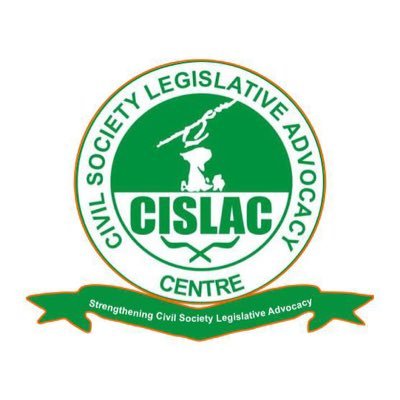The oversight role of the media in ensuring public officials are accountable, responsive, and efficient managers of the Nigeria Defence and Security sector was among the recommendations at the end of a two-day defence and security anti-corruption training for civil society organisations and media practitioners held in Lagos recently.
The workshop was organised by the Civil Society Legislative Advocacy Centre (CISLAC) and Transparency International In Nigeria (TI-Nigeria) in collaboration with Transparency International – Defence Programme.
Participants from the civil society and media recommended maintaining balanced journalism of Defence and Security reporting to prevent consequences of conflict insensitivity and over-sensationalism.
They also called for Continuous Civil Society advocacy to strengthen oversight activities in the Defence and Security sector for enhanced operational efficiency, noting that Civil Society and media oversight of the Defence and Security sector is hampered by continuous threats and intimidations targeted at actors, programmes and activities.
External oversight of the Defence and Security on procurements according to the communique is a critical and collective responsibility of the National Assembly, the Office of the Auditor General of the Federation, Civil Society and the media.
The media was urged to regularly monitor defence and security issues and report findings on their various platforms.
The immediate amendment to the relevant provisions in the Freedom of Information Act including Section 11 (1), was also called for, to remove contradictory provisions hampering civilian oversight of the Defence and Security sector while enhancing transparency and accountability in the procurement process.
Other general recommendations are as follows:
- Conducting regular audits of Defence and Security operations for better quality control and assurance that enhance the overall performance of the sector.
- Strengthening the recruitment process into the Defence and Security sector to prevent infiltration of unscrupulous elements for better performance, management and overall efficiency.
- Strengthening oversight activities across corruption-porous components of Defence and Security like political, financial, personnel, operational and procurement spheres to prevent mismanagement and sabotage occasioned by entrenched interest.
- Improving the efficiency of the Defence and Security sector through functional, monitoring, and transparency reforms as well as performance reward measures.
- Strengthening the existing legal provisions backed by political will to complement the reform process and oversight activities in the Defence and Security sector.
- Immediate review of weaponised military operations in various parts of the country to assess their relevance to the current reality.
- Understanding the concept of information disclosure in the Defence and Security sector, taking into cognisance needless restriction, classification, confidentiality, unauthorisation and secrecy, for proactive and efficient engagement.
- Adequate sanction to erring officers within the Defence and Security sector to strengthen internal discipline and enhance external oversight.
- Removing and harmonising contradictory hurdles to information disclosure in the Defence and Security sector like Official Secret Act, LFN 2004, Section 97 of the Criminal Code Act, Section 15(2) of the Procurement Act, invalidating application of some key provisions of the Freedom of Information Act.
- Relationship building in Civil Society/ media engagements for transparency and accountability in the Defence and Security sector to aid access to appropriate information for evidence-based advocacy.
- Coalition building/ formation of a network in the Defence and Security sector for a formidable advocacy to enhance transparency and accountability in the Defence and Security sector.
- Maintaining diplomacy in Civil Society/ media engagements in the Defence and Security sector to elicit appropriate information that supports impactful advocacy and public sensitisation.
- Focus-shifting from capital procurement to maintenance, logistic and support, technology transfer and coordination, training and capacity building, information and Communication Technology, Small Arms and Ammunition procurement in the Defence and Security sector for a comprehensive oversight.
- Merit-based personnel management in the Defence and Security sector in terms of recruitment, promotion and deployment.
- Ensuring adequate training and retraining programmes, regular audits and reviews, institutional strengthening, physical and mental healthcare management, and integrated support systems.
- Ensuring impactful personnel oversight in the Defence and Security sector by protecting systemic fairness, equity and diversity.
The communique was signed by Auwal Ibrahim Musa (Rafsanjani), Executive Director of CISLAC; Chioma Obinna from Vanguard Newspaper; Ganiu Olamilakan Lawal of SiidAfrican Initiatives for Youth Development; Modupe Asama from Access to Learning and School Initiative, and Emmanuel Timi Ajayi from Media Career Development Network.
READ ALSO: Editorial: Essence of work anniversary


